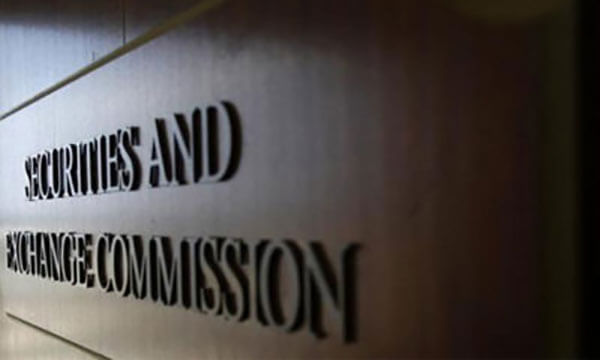The 21st century is the dawn for corporations. They are expanding their business across the globe, with this expansion serious problems are happening. This problem is the evasion of tax by these corporations, as we know tax revenue is very important for the country especially for developing countries like Pakistan.
These corporations are involved in such abusive practices through which they pay lower tax than their actual liability. It is because these corporations hire lawyers and accountants to show false income statements to tax authorities.
In this situation, there is a need to provide legal reforms to control these abusive tax practices by corporations. This research paper will help us to carve a way out of this problem and to decrease the negative effects on the economy.
Read Also: Accountability and Independence of SECP
Introduction
The current era is the era of globalization in which corporations are focused players. They are willing to expand their business activities throughout the world, but at the same time, it produces impact both positive and negative on society. For instance, they commit corporate crimes in such a professional way, that it is hard to detect them. These crimes include price-fixing, misleading advertising, tax evasion, illegal dumping, and investment fraud. Therefore, it is necessary to discuss the vulnerability of the Pakistani tax system for the tax abusive practices by the corporations and providing legal reforms to protect the economy.
If we take the example of our country, we know that our country is a developing country, for this kind of country tax revenue is very crucial for the development of the country and welfare of the people. There are many factors that directly contribute to the tax abusive practices and there is a need to make such reforms and regulations which prevent this kind of practice.
The word tax is derived from the Latin word “taxo” means “rate”, which can be defined as “it is a financial charge or other levy imposed upon a taxpayer (an individual or legal entity) by the state or the functional equivalent of a state to fund various public expenditures”[1]. The tax revenue is the most important source of public revenue. A tax is a compulsory payment levied by the government on individuals or companies to meet the expenditure which is required for public welfare[2]. Irrespective of the likeness or dislike ness of the idea of paying tax it is established fact that democracies cannot function properly if tax is not collected then development and welfare of the people cannot be achieved, in result, the poor will become poorer and rich will become richer.
Read Also: Critical Analyses of SECP Act 1997 and Concerned Issues
It is the duty of every individual and company to pay tax, but it did not happen because most of the companies hire the best lawyers and accountants to figure out the way to avoid paying huge amounts of tax.
Tax evasion is different from tax avoidance and it can be defined as” Unlawful attempt to minimize tax liability through fraudulent techniques to circumvent or frustrate tax laws, such as deliberate understatement of taxable income or wilful non-payment of due taxes. Whereas tax evasion is an offense (punishable by both civil and criminal penalties)”[3].
“Tax evasion is to escape paying taxes illegally. This is usually when a person misrepresents or conceals the true state of their affairs to tax authorities, for example, dishonest tax reporting”[4]. The punishment for evading tax is huge fines and in some countries, imprisonment is also granted, but still, these corporations get away very easily because of their highly influential reputation.
Reason For Tax Evasion
What is the reason that companies commit this crime? There are many reasons for it. The very common reason is that companies look for ways to enhance shareholders’ value and maximizing profit is the main objective for tax evasion. That’s why these companies established their business in those countries which are tax heavens, in which they can easily hide their true profits.
Tax evasion has harmful effects on society and on the citizen because corporations raise their profits by decreasing their tax liability and at the same time they underpay their employees. Now the question arises why we emphasize more on the tax revenue? We emphasize it because it is essential for the economy. Governments use this revenue to increase the living standard of the people and provide them services. The main purpose of the tax revenue is to generate sufficient revenue to finance public service activities in a non-inflationary way.
Read Also: Demutualization of Stock Exchanges- Position In Pakistan
Corporate crimes are becoming very common in the current era throughout the world. Faced with this challenge every segment of the criminal justice system is required to come up with effective solutions to eradicate this problem. As our own country is a developing country there is also a great need to create such reforms in our system through which we can control these tax evasion by every person.
The Research Problem
It’s a normal discussion that corporations evade tax in various ways. These corporations nowadays are so clever that they have discovered new ways to evade tax which are very hard to detect. Overbilling of purchase of raw material, under billing or non-billing of sales, dummy salary entries are some of the examples which are used by the corporations. In this situation, it is necessary to discuss the vulnerability of the Pakistani tax system for the tax abusive practices by the corporations and providing legal reforms to protect the economy[5]. There is a need to eliminate offshore tax heavens where most of the black money of these corporations has been kept[6].
Significance of the Research:
The significance of this research work is to clearly determine the social, political, and economic effects of tax evasion nationally and internationally, and particularly on Pakistan by making suitable reforms in the taxation laws.
This research work will also elaborate on the tax abusive practices used by the corporations and views of the superior courts regarding tax evasion will also be discussed.
Read Also: Different Methods of Raising Capital for a Company
Hypothesis
There is no vulnerability of the Pakistan tax system to give place for the tax abusive practices by the corporation and there is no need to provide legal reforms to protect the economy.
The vulnerability of the Pakistani tax system may or may not provide chances for the tax abusive practices by the corporation and thus there is not s need to provide legal reforms to protect the economy.
There is the vulnerability of the Pakistani tax system for the tax abusive practices by the corporation, it is causing problems and thus there is a great need to provide legal reforms to protect the economy.
The hypothesis will be tested according to the three forms mentioned above.
Literature Review
- An article “Whiter than White Collar Crime: tax, fraud insurance, and the management of stigma” by Doreen McBarnet.
“This article based on an empirical study of tax evasion and avoidance, and it explores the boundaries of deviant and lawful activities and shows how those boundaries are manipulated to ensure that taxpayers can both try to escape tax and stay on the legal side of the boundary. It describes techniques of ‘non-disclosing disclosure’ and ‘fraud insurance’, to show how the labeling process can be managed. It concludes that labeling theory should take account of the scope for self-labeling and the management of stigma. It suggests a rethinking of the classic debate over the definition of white-collar crime”[7].
- An article “The Role of Trust in Nurturing Compliance: A Study of Accused Tax Avoiders” by Kristina Murphy.
Why rules and regulations of regulatory authority are obeyed, is an important question which arises in most of the mind. This article thorough some light on this issue and states that, it is because of threat and other legal coercion tools that one institution has while implementing its decision. These practices sometimes become very effective but most of the time it causes a negative impact on the peoples specifically taking the example of taxpayers. Data is collected from thousands of taxpayers answering the above question. It is said that due to the corrupt practices of authorities the taxpayers are hesitant to comply with the regulation, but if authorities work fairly people will trust them more. So this article suggests that if instead of deterrence the strategy has to be taken to improve distrust between both sides to improve the tax evasion problem[8].
- An article “Tax Evasion as White Collar Fraud” by Geraldine SzottMoohr.
“This analysis of the criminal tax statutes shows they are similar to white-collar frauds in doctrine, purpose, and enforcement strategies. Nevertheless, the tax code is a self-contained criminal code designed to avoid recourse to general white-collar offenses. For this reason, the strategic enforcement advantages of charging violators with mail or wire fraud are not appropriate or in accord with congressional purpose. Well-known tax cases show that criminal tax provisions apply to a divergent range of offenders and provide authorities with a valuable enforcement instrument”[9].
- “Victims of White Collar and Corporate Crimes” by Hazel Croall.
“A major form of victimization excluded from the BCS and other crime surveys is that of white-collar and corporate crime. This is often seen to involve a very different set of relationships between offenders and victims, as there is less obvious direct harm or ‘blood on the streets’. It appears less personal as immediate victims are often ‘employers’, the ‘government’, the ‘public health’ or the ‘environment’ and in many cases, such as where safety laws are broken, causing the death or injury of employees, there is no direct intent to harm. There are also different images of the structural dimensions of victimization. To some, all citizens are victims of this kind of crime, irrespective of age, class, or gender, whereas to others the crimes of the wealthy and powerful prey on the poor and powerless. Yet at the same time, victims of some financial frauds may fail to attract sympathy as they are assumed to be wealthy and to have willingly parted with their money”[10].
- “The Pakistani Economy: Economic Growth and Structural Reform” by Robert E. Looney
“This study provides an overview of Pakistan’s experience with economic reforms, looking at key elements in the reforms, implementation problems, the handling of potential difficulties, and how Pakistan’s reforms compare with those undertaken in other parts of the developing world. After examining the reforms themselves, the study analyses their impact on the economic freedom of the average Pakistani. Attention is then focused on reforms in the country’s major economic sectors: manufacturing, agriculture, finance, transport, and telecommunications. Of particular importance is an examination of the benefits likely to stem from the country’s privatization program. The study concludes with a series of policy simulations for the year 2000. Of unique interest to scholars and policymakers is that these reforms have been implemented in an Islamic setting”[11].
- “Tax Evasion: An Experimental Approach” by Paul Webley, Henry Robben, Henk Elffers, Dick Hessing.
“The aim of this book, first published in 1991, is not to examine the moral or economic rights and wrongs of the issue, but to introduce a fresh way of exploring this old but growing problem. Research into tax evasion has been bedeviled with measurement problems: the hidden economy has been well named. The key is to design experimental situations that engage the same psychological processes as their real-world counterparts. This has been achieved by embedding the declaration of taxes in simulated business games. A feature of the research is that it is cross-national, which also enhances ecological validity. This work will be of particular interest to applied social psychologists, tax researchers, and experimental economists”[12].
- Corporate Crimes: A reference handbook by Richard D. Hartley
“Should corporations and their employees be held criminally liable for shoddy business practices? This volume explores both sides of the question, discussing the nature and scope of corporate crime, the controversies surrounding it, and the most promising solutions. How do we define corporate crime and how do we detect it? Corporate Crime guides readers through the definitions and concepts as well as the difficulties in detecting, prosecuting, and punishing corporate wrongdoing. How do corporations get away with their crimes? This reference examines both the successes and the failures of government and law enforcement policies concerning the punishment of corporate crime and explores leading contemporary proposals for controlling and deterring it. It is an essential information source for any citizen of corporate America”[13].
Research Methodology
This thesis will be analytical research and deep comparison of the tax legislation schemes which was introduced in Pakistan. The income tax ordinance of Pakistan 2001 will be of great focus. I will also mention important cases that have been decided by the upper court of Pakistan. Lastly, I will also give a gentle touch of UK tax legislation to compare it with our tax system. Relevant literature, articles, and books will also be considered in this thesis.
Bibliography
- McBarnet, Doreen. “Whiter than White Collar Crime: tax, fraud insurance, and the management of stigma.” British Journal of Sociology, 42(1991): 323-344. Published by Wiley Blackwell
- Corall, Hazel. “Victims of White Collar and Corporate Crimes.” In Victims, Crime and Society, (2007): 78-109. London: SAGE Publications Ltd.
- Murphy, Kristina. “The Role of Trust in Nurturing Compliance: A Study of Accused Tax Avoiders.” Law and Human Behaviour, 28 (2004): 187-209.
- Moohr, Geraldine Szoot. “Tax Evasion as White Collar Fraud.” Houston Business and Tax Law Journal, 9(2009): 208-215.
- E Robert. The Pakistani economy: Economic growth and structural reform. Greenwood Publishing Group, 1997.
- Paul and Robben. Henry Tax evasion: An experimental approach. Cambridge University Press, 1991.
- D. Richard. “Corporate crime: a reference handbook.” ABC-CLIO, (2008).
- Pedi Views. “Tax.” https://pediaview.com/openpedia/Tax#cite_note-1 (accessed May 6, 2015).
- Kalyan City Life. “What is Tax? Definition – Adam Smith’s Canons of Taxation.” https://kalyan- blogspot.com/2010/12/what-is-tax-definition-adam-smith.html (accessed May 6, 2015).
- Business Dictionary. “Tax Evasion.” https://www.businessdictionary.com/definition/tax-evasion.html (accessed May 6, 2015).
- “What is the Difference between Tax Evasion and Tax Avoidance.” https://www.nouse.co.uk/2013/01/22/what-is-the-difference-between-tax-evasion-and-tax-avoidance/ (accessed May 6, 2015).
- Indian issues. “Tax evasion by the corporate sector.” https://imperfectnation.weebly.com/tax-evasion-by-corporate-sector.html (accessed May 6, 2015).
- Bill Mitchell. “Solving tax avoidance will not cure the Eurozone of stagnation.” Modern Monetary Theory … macroeconomic reality, https://bilbo.economicoutlook.net/blog/?p=29731 (accessed May 6, 2015).




very informative and bitter realities about tax evasion and white collars